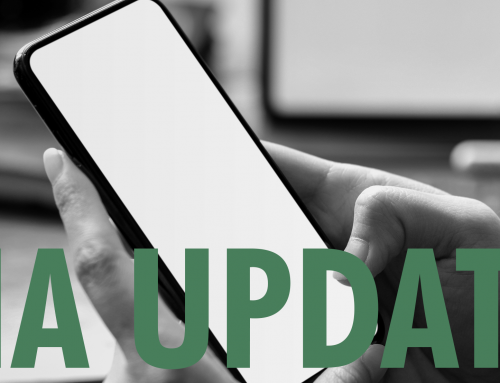Legislative Update: Senate Bill 7 – Reporting Improper Educator-Student Relationships
The Texas legislature recently modified legislation regarding concerns over inappropriate employee-student relationships in school districts as a result of the prolific use of social media and other electronic communication by both employees and students. Effective September 1, 2017, school districts will be subject to new reporting requirements to the State Board for Educator Certification (“SBEC”) for improper educator-student relationships under Texas Senate Bill 7.
New Reporting Requirements for Principals and Superintendents
The new legislation requires principals to notify superintendents or directors not later than the seventh (7th) business day after the date of an educator’s termination of employment or resignation following an alleged incident of misconduct as defined by law or the principal knew about an educator’s criminal record that involves evidence that the educator may have engaged in misconduct as described by law.
Subsequently, superintendents who receive such information regarding an employee’s prohibited conduct or criminal record must notify SBEC not later than the seventh business day after receiving a report from a principal or learning about the an educator’s termination or resignation following an alleged incident of misconduct as defined by law or an educator’s criminal record. A principal or Superintendent who in good faith and in their official capacity makes a report to SBEC or communicates with another superintendent or principal concerning an educator’s criminal record or alleged incident of misconduct is immune from both criminal and civil liability.
For a full list of misconduct as defined by law, please refer to Board Policy DHB (LEGAL).
Consequences for Failure to Report
Principals and superintendents who fail to timely report as required by law may be subject to sanctions, including administrative penalties from SBEC in an amount not less than $500 and not to exceed $10,000. Additionally, SBEC is prohibited from renewing the certification of an educator who has been fined for a failure to report until the penalty is paid. Furthermore, principals or superintendents who fail to report prohibited conduct or criminal record by the required date with an intent to conceal the information are now guilty of committing a state jail felony.
Other Important Notification/Policy Changes
Notification to Parents. Districts must adopt a written policy under which notice is provided to the parent or guardian of a student with whom an educator is alleged to have engaged in prohibited misconduct This notice must inform the parent or guardian that the alleged misconduct occurred, whether the educator was terminated following an investigation or resigned before completion, and whether a report was submitted to SBEC concerning the alleged misconduct. This report must be provided as soon as feasible after the employing entity becomes aware the alleged misconduct may have occurred.
Electronic Communication Policy. Senate Bill 7 also requires districts to adopt a written electronic communication policy. The term “electronic communication” means any communication facilitated by the use of any electronic device, including a telephone, cellular telephone, computer, computer network, personal data assistant, or pager. This term includes emails, text messages, instant messages, and any communications made through an Internet website, including a social media website or a social networking website. This policy must include provisions designed to prevent improper electronic communications between a school employee and student. Moreover, the policy must allow school employees to elect not to disclose their personal telephone numbers or emails to students, and should provide instructions for employees to notify appropriate administrators about incidents of improper student-employee communications.
Pre-employment Affidavits. Applicants for jobs with a district must submit an affidavit disclosing whether the applicant has ever been charged with, adjudicated for, or convicted of having an inappropriate relationship with a minor. Any applicant who answers affirmatively must disclose all relevant facts pertaining to the charge in the affidavit, including whether the charge was determined to be true or false. Failure to disclose this information is grounds for termination of employment.
Revocation of Certificate for Assisting Person who Engaged in Sexual Misconduct. If an individual assists another person in obtaining employment at a school district by routine transmission of personnel and administrative files and the person knew that the other person has previously engaged in sexual misconduct with a minor or student in violation of the law, SBEC may suspend or revoke a certificate, impose other sanctions against the person, or refuse to issue a certificate to the person. Thus, as of September 1, 2017, do not provide routine transmission of personnel files if the District has knowledge of sexual misconduct and do not provide a recommendation, neutral or otherwise.
Revocation of Retirement Annuity. Finally, educators who are convicted of continuous sexual abuse of a young child or children, improper relationship between educator and student, sexual assault, or aggravated sexual assault, or a federal offense that contains elements that are substantially similar to the elements of a felony offense are prohibited from receiving a service retirement annuity. However, educators who are barred from receiving their annuity under this legislation are entitled to a refund of their retirement annuity contributions plus interest, but can no longer collect annuity payments.
The practical concern is that Board Policy Update 109 will not be released until after SB 7 is in effect. Therefore, we recommend drafting a local policy or regulation in the interim to comply with the new law while waiting for Update 109. If you need any assistance drafting a local policy or regulation, please do not hesitate to contact our office.
Stay tuned for more legislative updates as the Special Session gets underway this month!






Leave A Comment